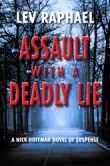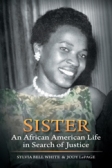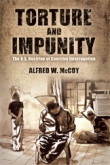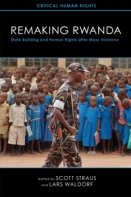At the University of Wisconsin Press, we’ve published many books on topics that seem ripped from current news headlines. Whether fiction or nonfiction, they offer broader or deeper perspectives on current events.
 This August, as the country was shocked by photos of heavily armed Ferguson, Missouri, police wearing camo and patrolling in a massively armored truck, former soldiers commented, “We rolled lighter than that in an actual warzone.” We had just published Lev Raphael’s Assault with a Deadly Lie, a novel of suspense touching on many hot-button issues—plagiarism, bullying, suicide, academic freedom, stalking—but most of all on the militarization of police in American towns and cities. Raphael wrote op-eds in the Huffington Post: Why Are We Arming Our Police Departments for War? and Do College Towns Really Need Tanks to Keep Them Safe?
This August, as the country was shocked by photos of heavily armed Ferguson, Missouri, police wearing camo and patrolling in a massively armored truck, former soldiers commented, “We rolled lighter than that in an actual warzone.” We had just published Lev Raphael’s Assault with a Deadly Lie, a novel of suspense touching on many hot-button issues—plagiarism, bullying, suicide, academic freedom, stalking—but most of all on the militarization of police in American towns and cities. Raphael wrote op-eds in the Huffington Post: Why Are We Arming Our Police Departments for War? and Do College Towns Really Need Tanks to Keep Them Safe?
The death of several unarmed black men this summer at the hands of police also underscored the continuing importance of the story of Daniel Bell, murdered by two Milwaukee policemen in 1958. His sister, Sylvia Bell White, tells the story of her whole life, including Daniel’s murder and her quest for the truth to come out, in the book Sister: An African American Life in Search of Justice. Sylvia Bell White is a powerful witness to systemic racial injustice and public indifference to the wrongful deaths of African Americans.
the continuing importance of the story of Daniel Bell, murdered by two Milwaukee policemen in 1958. His sister, Sylvia Bell White, tells the story of her whole life, including Daniel’s murder and her quest for the truth to come out, in the book Sister: An African American Life in Search of Justice. Sylvia Bell White is a powerful witness to systemic racial injustice and public indifference to the wrongful deaths of African Americans.
This fall, we’ve published The Great Sand Fracas of Ames County, a novel by Jerry Apps. When Apps started plotting the novel several years ago, he was thinking about historic trees and various threats to them. A frac sand mine seemed like a good plot element; there were  about ten mines being developed in western Wisconsin. By the end of 2013, sand mining had boomed. There were already more than 120 mines active or in development. Frac sand mining became the center of Apps’s story, as he portrayed the battles over land use in a fictional Wisconsin town. “Through fiction I’ve tried to illustrate, in an entertaining way, how complicated local development issues can be,” Apps wrote in a blog.
about ten mines being developed in western Wisconsin. By the end of 2013, sand mining had boomed. There were already more than 120 mines active or in development. Frac sand mining became the center of Apps’s story, as he portrayed the battles over land use in a fictional Wisconsin town. “Through fiction I’ve tried to illustrate, in an entertaining way, how complicated local development issues can be,” Apps wrote in a blog.
As Barack Obama was running for president, historian Bruce Mouser was finishing a book for us on George Edwin Taylor, an African American who ran for president in 1904 as the nominee of the National Liberty Party. In the fall of 2013, as President Obama made a case for airstrikes against Syrian chemical weapons, we were preparing to publish Chris Edelson’s legal history of Emergency Presidential Power. Alfred McCoy’s Torture and Impunity, published shortly after revelations of torture and humiliation of prisoners at Abu Ghraib in Iraq, probes the political and cultural dynamics that have made impunity for torture a bipartisan policy of the U.S. government from the 1950s to the present.
against Syrian chemical weapons, we were preparing to publish Chris Edelson’s legal history of Emergency Presidential Power. Alfred McCoy’s Torture and Impunity, published shortly after revelations of torture and humiliation of prisoners at Abu Ghraib in Iraq, probes the political and cultural dynamics that have made impunity for torture a bipartisan policy of the U.S. government from the 1950s to the present.
Our list in Russian and Eastern European Studies has frequently intersected with world events, as well. War in the Balkans in the 1990s resulted in Yugoslavia dividing into seven countries by 2008, creating avid interest among diplomats, armies, and aid organizations in the language textbooks books we’d been publishing for Macedonian, Bosnian-Croatian-Serbian, and Albanian. In 2012, as the Russian feminist punk band Pussy Riot was arrested for the vaguely defined crime of  “hooliganism,” we were publishing Hooligans in Khrushchev’s Russia: Defining, Policing, and Producing Deviance during the Thaw by Brian LaPierre. As Russian troops recently invaded Ukraine to reclaim the Crimean peninsula, we were publishing Russian–Ottoman Borderlands, edited by Lucien J. Frary and Mara Kozelsky, a historical overview of the frequent territorial disputes in the Balkans, Black Sea region, and Caucasus.
“hooliganism,” we were publishing Hooligans in Khrushchev’s Russia: Defining, Policing, and Producing Deviance during the Thaw by Brian LaPierre. As Russian troops recently invaded Ukraine to reclaim the Crimean peninsula, we were publishing Russian–Ottoman Borderlands, edited by Lucien J. Frary and Mara Kozelsky, a historical overview of the frequent territorial disputes in the Balkans, Black Sea region, and Caucasus.
With a strong list of gay- and lesbian-interest books, we’ve published several that presaged or contributed to social conversations around gay family rights: Just Married: Gay Marriage and the Expansion of Human Rights by Canadians Kevin Bourassa and Joe Varnell; Lawfully Wedded Husband: How My Gay Marriage Will Save the American Family by American Joel Derfner; and The Paternity Test, Michael Lowenthal’s novel about gay parenthood.
The Last Deployment: How a Gay, Hammer-Swinging Twentysomething Survived a Year in Iraq by Bronson Lemer was published in the midst of the final “Don’t Ask, Don’t Tell” policy debate. Joy Ladin’s moving memoir Through the Door of Life: A Jewish Journey between Genders prompted one reviewer to comment, “It is a fierce story of regular old human life: hideous choices, endless repercussions, occasional glory, frequent humiliation, abiding difficulty. It could have happened to us.” Her story continues to make news.
 And when we published Remaking Rwanda: State Building and Human Rights after Mass Violence, edited by Scott Straus and Lars Waldorf, the book achieved a level of sales unexpected for an edited volume of scholarly essays. The cause of its success? A public denunciation of the book by the Rwandan government.
And when we published Remaking Rwanda: State Building and Human Rights after Mass Violence, edited by Scott Straus and Lars Waldorf, the book achieved a level of sales unexpected for an edited volume of scholarly essays. The cause of its success? A public denunciation of the book by the Rwandan government.
UNIVERSITY PRESS WEEK BLOG TOUR: Take a fascinating tour of other blogs from university presses.

